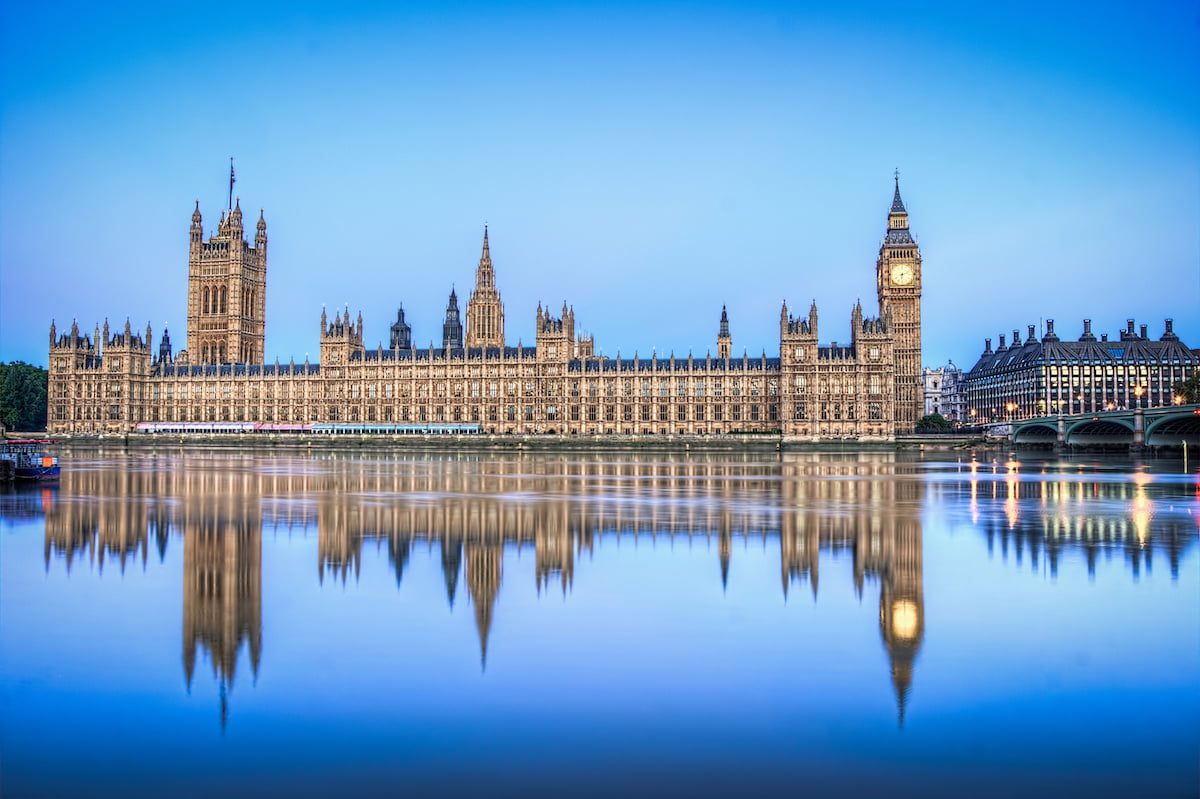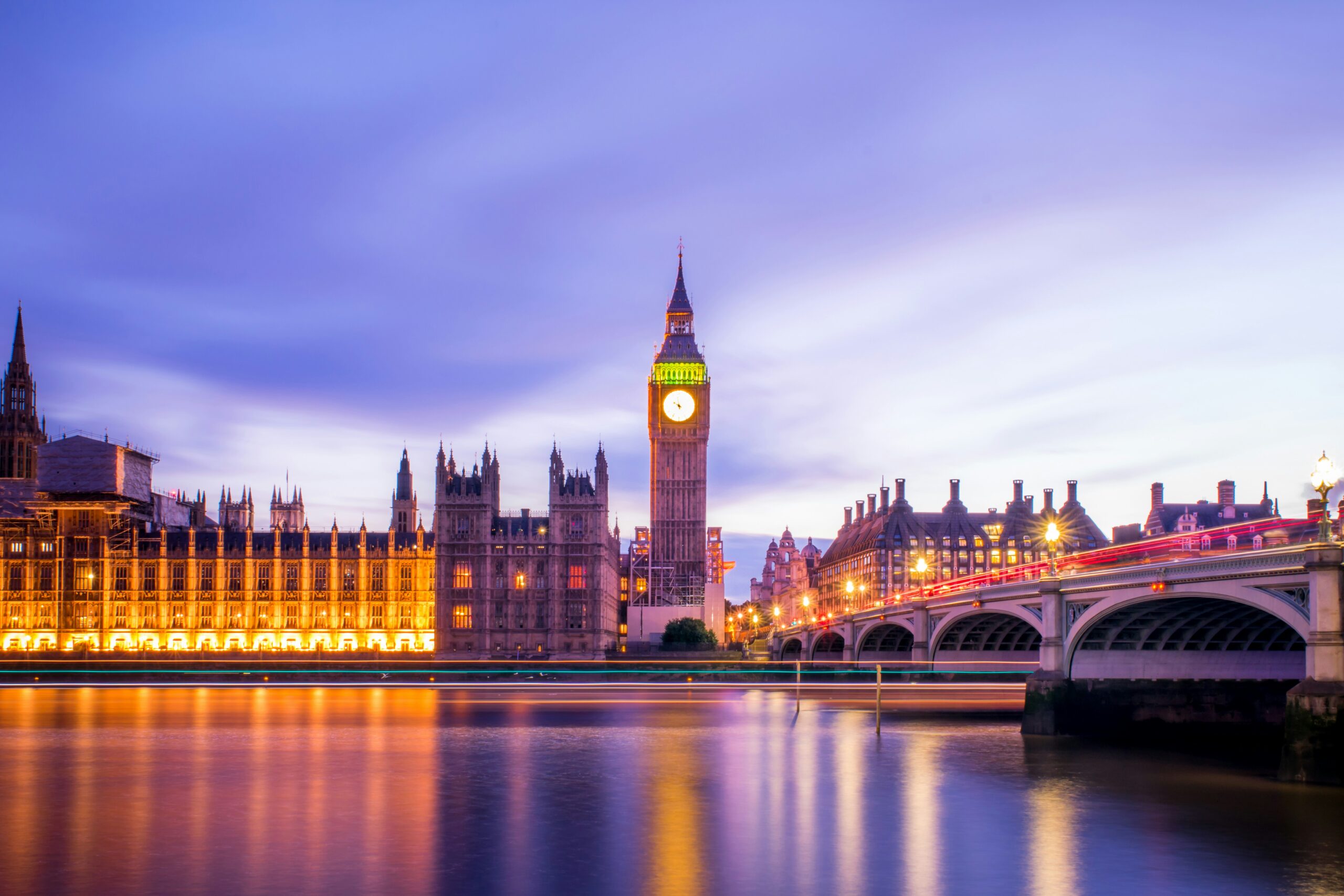A new report from the Conservative Drug Policy Reform Group (CDPRG) has shown the majority of MPs in the UK support drug policy reform, and highlights how current policy is a barrier to psychedelic research – restricting the development of new medicines.
As the rest of the world moves towards more progressive approaches to drug policy, the UK announced a ten-year crackdown on drugs. Dubbed the ‘overdose capital of Europe’, the UK’s new policy would see a record amount of funding funneled into reducing addiction and drug-related crime.
The new report from the CDPRG, ‘Making UK Drug Policy A Success: Reforming The Policy Making Process’, shows that the majority of MP’s from all parties want evidence-based reform in the UK – something the new government strategy is lacking. It also emphasises that the UK needs to rewrite its policymaking process for drugs.
The report says that the strategy, informed by the independent Dame Carol Black review, is confused between its approaches to problematic and non-problematic drug users, and “potentially places yet more burden on a criminal justice system that is already swamped by drugs-related work, serving to drive drug users even closer to their criminal supply chain and away from the treatment and security the state should offer.”
Time for evidence-based reform
The CDPRG polled MPs in June 2021, revealing that 72 per cent of Conservative MPs agree the process of making drug policy should make more use of evidence and research.
It also showed that 85 per cent of Conservative MPs, and 90 per cent of all MPs, agree that improved cross-departmental coordination would better in helping to tackle the health crime and social problems associated with controlled drugs.
The recommendations in the report are informed by two round tables – one in collaboration with the Institute for Government and one co-chaired by Drug Science – as well as the most comprehensive analysis of UK drug policy to date. This analysis was carried out by the UK Drug Policy Commission almost ten years ago in 2012 and still remains relevant today.
CDPRG director of research, Dr Toby Webster, commented: “We’ve taken [from the analysis] the already established lessons of how drug policy should be made if it is to have a chance of achieving its stated objectives.
“The drug strategy is more complete in some areas than others – there will be a considerable amount of ongoing development, particularly in those areas for which they didn’t carry out a decent, formal, independent consultation, which is essentially everything except for treatment for addiction.
“Carol Black’s review of drugs part 2 covered the treatment of addiction very thoroughly, and it was clearly a useful resource for the team drawing up this strategy, as is reflected in the quality and detail of the recommendations they make in this area. There remains the opportunity for more formal consultation to improve the plans that are still being drawn up, and this is something we will be advocating for.
“As we engage with the ongoing development of the drug strategy, we hope to emphasise the principles of good governance that we present in our report, and we hope that this can be of some use – good policymaking processes lead to better policies, and this is what we hope to see.
“We are overall optimistic that there is an understanding that evaluating these policies properly, and having proper accountability, is key to making sure that we don’t continue the failings of the past, and we hope that this is maintained.
“We hope that the government’s commitment to evaluation and developing more sensible outcome measures leads to a willingness to admit and learn from mistakes, and change course if efforts are not working”.
The Government’s aim in its new strategy to help people reduce their reliance on addictive substances has generally been welcomed, but evidence-based drug reform groups said the new measures did not go far enough.
Drug Science urged the Government “to change its approach completely, and to adopt a rational, evidence-based approach of drug control”.
Responses also raised concerns that many of the initiatives listed are against evidence and will cause further harm.
This sentiment from MPs and reform groups is an echo of the UK public’s views, with public polling from 2019 showing that only one in four adults believe current UK drug policy is effective at preventing harm to health and wellbeing, and three in four believe that criminal sanctions do not deter either drug use or supply.
Additionally, a public survey carried out by YouGov earlier this year showed majority support for the rescheduling of psilocybin for research and medical purposes.
“The UK has made insufficient efforts to keep regulations up to date with the evidence base, and has been slow to respond to emerging information,” states the report.
Reforming the policymaking process
The report underlines the need for the UK to rewrite the policymaking process itself, saying that a methodologically flawed process sits behind the UK’s drug crisis.
Chair of the CDPRG MP Crispin Blunt says reforming this process is a “crucial foundation for producing better drug policy in years to come”.
Highlighting the inadequate capacity to carry out research that can inform policy creation as the principal problem, the report puts forward recommendations on how this can be changed.
“This is compounded by there being no specification on the extent to which policymaking must make use of evidence,” it states.
“COVID-19 has irrevocably increased awareness that the political and collective response to public health crises is best when guided by good science.”
However, the Government currently does not extend this to its drugs policy.
The 23 recommendations include suggestions to:
- Develop a National Drug Research Strategy
- Establish a National Institute for Drug Science to coordinate research into substance misuse
- Pilot schemes of new and innovative approaches such as harm reduction initiatives
They also include recommendations to ensure the Ten Year Drug Strategy is effective, suggesting that:
- It should define specific, measurable and achievable goals, so that it can be clearly evaluated and held to account
- It should include a robust outcome framework with evidence-based logic models informed by an open consultation
- It should clearly and simply outline the responsibilities of every involved department for achieving each specific commitment, and
- It should outline the total projected expenditure including budgetary commitments of each spending department, and any funding which is to be ring-fenced for specific purposes
MP Crispin Blunt commented: “UK drug policy frequently misses its mark and our outcomes are among the worst in Europe for good reason.
“It has been apparent for some time that the way we make drug policy is not fit for purpose – indeed it is often chaotic and contradictory, barely evaluated, and with a distinct lack of senior accountability for the failures it has produced. This leads to an endless repetition of the same worn-out approaches, and outright denial from the top as they persist with strategies and legislation that has barely changed in 60 years.
“I am pleased to present our new report that shows in detail how poor policymaking has led to poor policies and poor outcomes, and recommends some steps towards improving this process.
“We are glad to see some acknowledgements of past failures in the government’s new drug strategy, and some more emphasis on data and evidence in taking the next few steps, but it remains to be seen if this will translate into concrete action.”
Hindering scientific research
The new report highlights the current renaissance in psychedelic research – much of which, after 50 years of scientific censorship, is gleaning new insights into addiction and resistant mental health conditions.
It notes the current barriers around the research of psychedelics such as psilocybin and MDMA in the UK – pointing out the multibillion market that is developing in this area across the globe.
“With over 50 psychedelics companies publicly listed across a number of exchanges, including the NYSE and NASDAQ, their combined market caps exceed $6bn,” states the report.
“One of the largest of these companies is the UK-based Compass Pathways, but despite this and due to the harsh regulatory environment, there are currently no psychedelic companies at all listed on the London stock exchange.”
The CDPRG’s report, ‘Medicinal Use of Psilocybin’ shows there is little evidence of a social benefit to the current controls, and that there is now clear evidence these controls have actually slowed the development of new medicines.
The organisation, which has been campaigning for 24 months to reschedule psilocybin from Schedule 1 to Schedule 2, stated: “Returning to the ‘moral purpose’ and the spirit in which they were written, our drug laws should not inhibit the development of medicines.”
It continues: “The Home Office has been resistant to consulting the ACMD on the aforementioned scheduling of psilocybin for the purposes of facilitating medical research in the substance in the UK, despite the Home Office confirming that the substance (and a number of other controlled drugs) have not been subject to analysis or recent analysis of harm.
“The issue of the relationship between the Home Office, ACMD and use of evidence, in general, is contentious, with concerns that short term political priorities are taking precedence over evidence.”
To read the full report please visit: www.cdprg.co.uk
[activecampaign form=52]


 Opinion2 years ago
Opinion2 years ago
 Insight3 years ago
Insight3 years ago
 Medicinal2 years ago
Medicinal2 years ago
 Research2 years ago
Research2 years ago
 Medicinal2 years ago
Medicinal2 years ago
 Markets & Industry1 year ago
Markets & Industry1 year ago
 News3 years ago
News3 years ago
 Medicinal2 years ago
Medicinal2 years ago

















